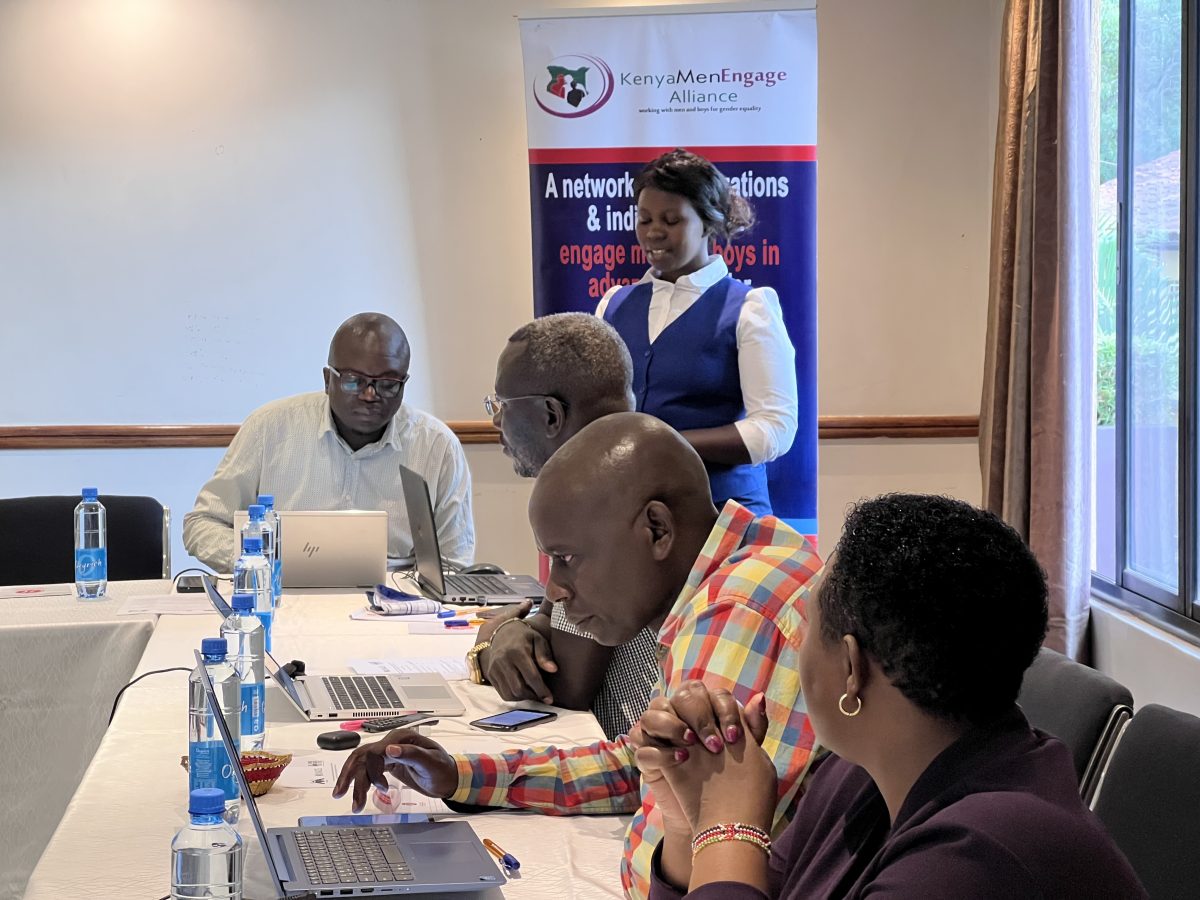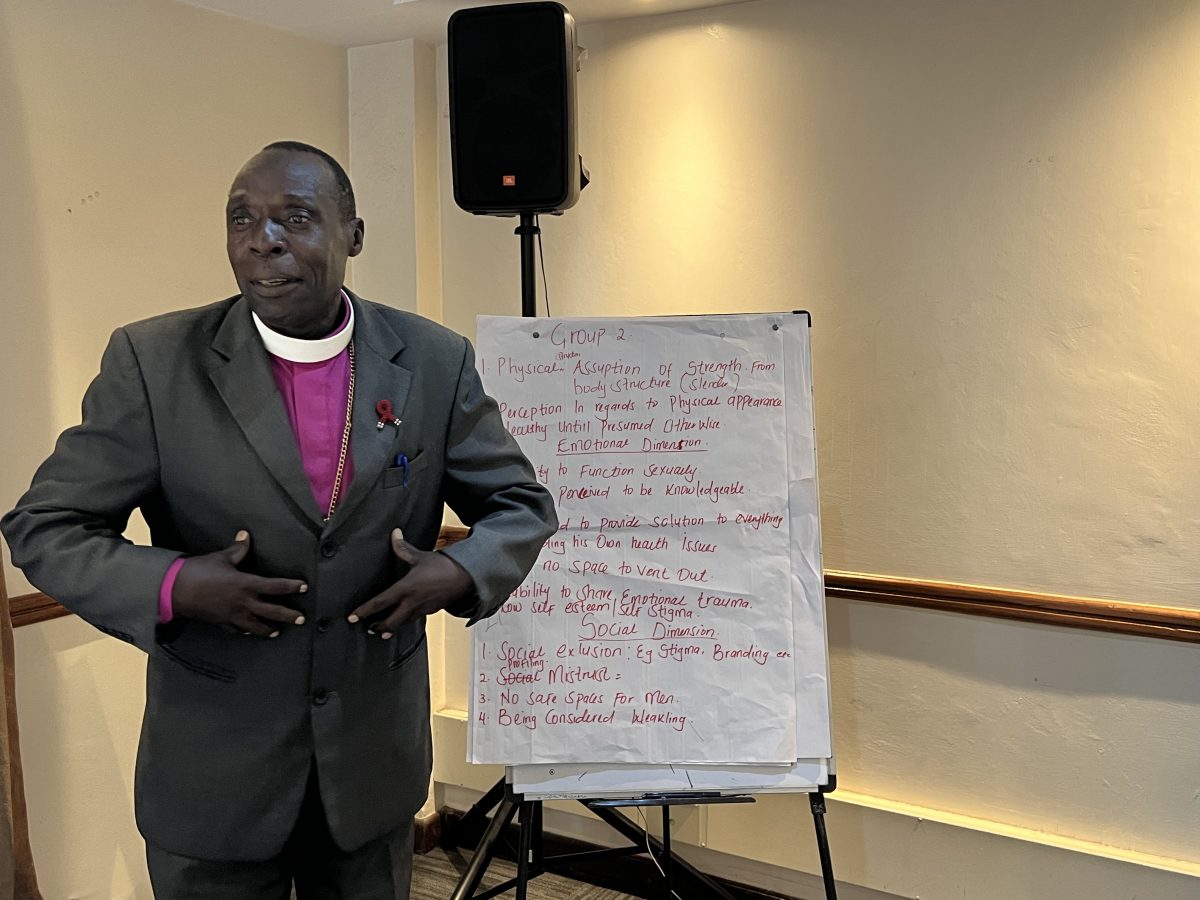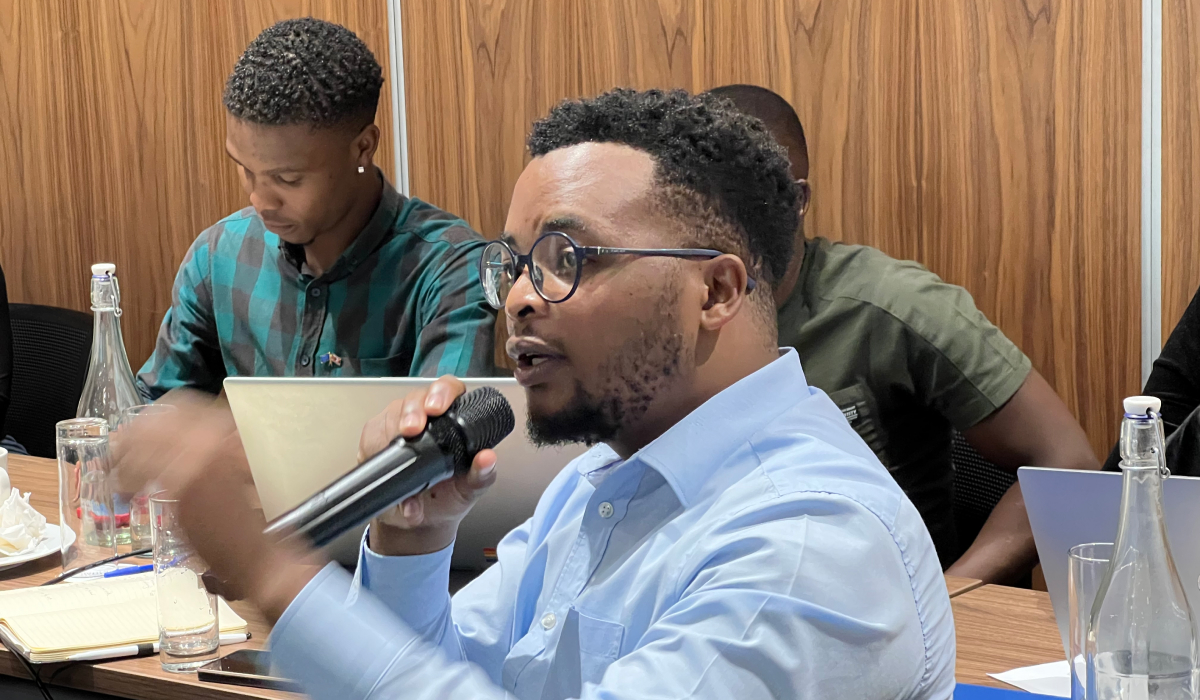In a concerted effort to address the challenges and seize the opportunities related to male engagement in HIV prevention, treatment, and care, a three-day country engagement workshop was recently held in eSwatini and Kenya. The workshops, facilitated by Sonke Gender Justice’s Jude Thaddues Njikem and Fredalene Booysen brought together stakeholders from civil society organizations, government entities, national AIDS control committees, UNAIDS, and various other partners.
The objective of these workshops was to foster a comprehensive understanding of the key challenges and opportunities surrounding male involvement in combating HIV/AIDS in each country. Through collaborative efforts, the project team and stakeholders developed country roadmaps that outline effective strategies for addressing these challenges and maximizing the opportunities.
During the workshops, CSOs were introduced to the male engagement framework, which serves as a valuable tool for ensuring male inclusion and involvement in policies, strategies, and interventions. Participants also gained access to tools and resources aimed at enhancing their current capacity for engaging men in HIV testing and treatment. Additionally, the workshops provided an opportunity to explore male engagement prospects offered by global, regional, and national initiatives, such as Education Plus, as well as interventions related to gender-based violence and improved sexual and reproductive health and rights outcomes. The sessions were designed to encourage interactive participation, allowing stakeholders to share their experiences and learn from one another. The workshops culminated in a call to action, urging participants to develop and implement strategies that prioritize engaging men and boys in HIV prevention, testing, and treatment. As a result, the workshop participants successfully crafted national roadmaps to operationalize male engagement in these critical areas.
The outputs generated under this project are expected to yield significant benefits. Firstly, CSOs were familiarized with the male engagement framework, providing them with a practical tool to ensure male inclusion in policies and interventions. Moreover, the tools and resources introduced during the workshops will enhance CSOs’ capacity to engage men in HIV testing and treatment. Furthermore, stakeholders were introduced to the MenandHIV.org clearing house, which will serve as a valuable resource to further inform promising approaches in male engagement. Lastly, the country-level roadmaps will guide the implementation of the Male Engagement Framework by government and CSO stakeholders, promoting collaboration and effective coordination.
The project has already yielded positive results in eSwatini and Kenya. Notably, it has bolstered the capacity of CSOs to implement male engagement programs by providing comprehensive training and technical assistance on various topics, including men’s health and well-being, gender equality, HIV prevention, treatment, and care, as well as social and behavior change communication. Furthermore, the project has improved coordination among stakeholders in country-level spaces. By facilitating meetings and workshops, the project team has fostered relationships and developed a shared understanding of the challenges and opportunities associated with male engagement in HIV prevention, treatment, and care.
The workshops concluded with the following recommendations:
- Accountability: Men should be held accountable for their actions, both at personal and community levels. They should be encouraged to take leadership roles in preventing and responding to HIV and GBV.
- Creation of a National Technical Working Group: A national working group should be created to advocate for male engagement in HIV testing, prevention, and treatment. This group should organize a nationwide consultation to engage men in the development and implementation of HIV prevention, treatment, and care programs.
- Evidence-based Advocacy: Policies that support male engagement in HIV prevention, treatment, and care should be advocated for. This includes policies that provide funding for male-specific programs, as well as policies that create a supportive environment for men who are HIV-positive.
- Multifaceted Approach to HIV and GBV Programming: Multifaceted social interventions should be used to address the root causes of HIV and GBV. These interventions should address power dynamics, gender roles, and sexual double standards. They should also build strong partnerships with key stakeholders, including government agencies, NGOs, and community-based organizations.
- Movement Strengthening and Capacity Building: The capacity of healthcare providers, community health workers, and peer educators should be enhanced through training programs and knowledge-sharing platforms. Training modules and resources on male engagement in HIV services should also be developed.
- Acknowledge Men’s Diversity: Men should be seen as a diverse group with multiple roles and vulnerabilities. An assessment of men’s reactions and attitudes to HIV services must include an analysis of different categories of men, rather than assuming and presenting men as a homogenous group.
- Review and Dissemination of the Male engagement guidelines: The male engagement guidelines should be reviewed and disseminated at the national and county level. These guidelines should be integrated into existing health systems to create an enabling environment for sustainable male engagement in HIV testing, treatment, and prevention.
- Knowledge Generation and Management: Disaggregated data that is sensitive to the special needs of different men should be generated. This data should be used to target special interventions and track success indicators. There should also be an investment in research to identify gaps, evaluate program effectiveness, and inform evidence-based practices.
- Community Ownership: Local communities should be empowered to take ownership of male engagement initiatives. They should be encouraged to participate in program design, implementation, and evaluation. Community-led monitoring mechanisms should also be established to foster accountability and sustainability.








